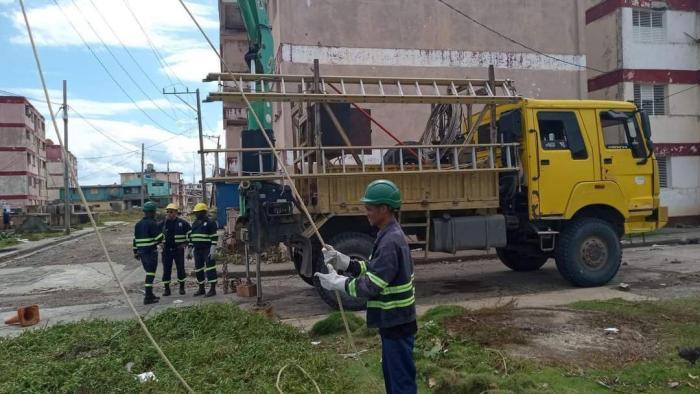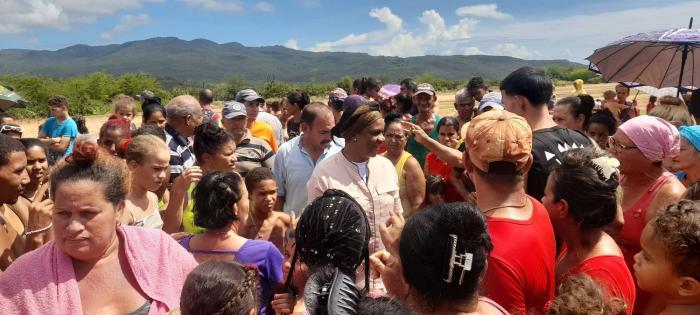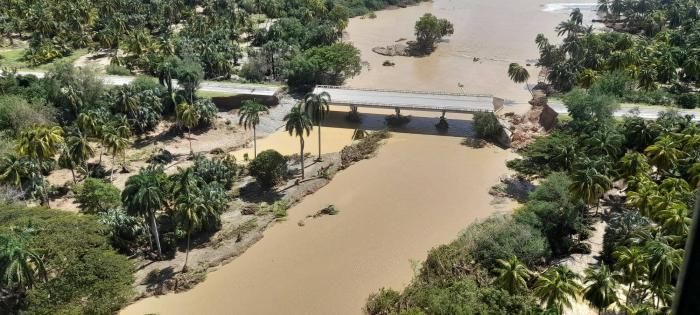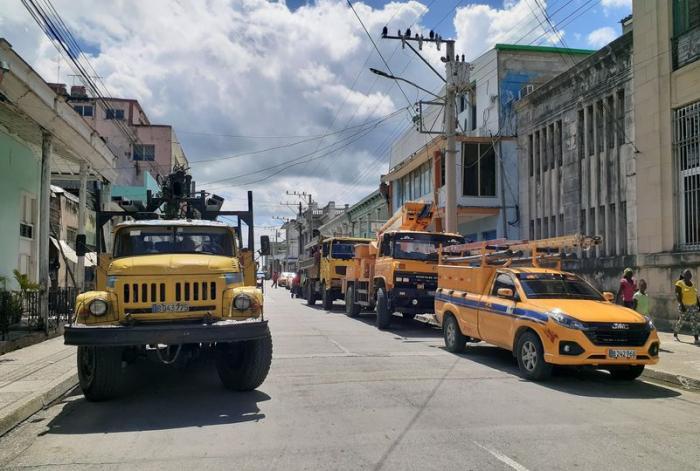
From all sides of life, data by data, the province of Guantanámo is priority one in the analysis and decisions being made by the country's leadership, in permanent communication with the authorities of that territory, hard hit by the meteorological event Oscar.
At this time, in terms of resources that are needed, especially in the four most affected municipalities -Baracoa, Maisí, San Antonio del Sur and Imías- there is a key word: transparency, in the sense that everything that is arriving from other parts of the country, and from other latitudes, will do so promptly to the most urgent hands.
That tone marked the reflections at the meeting of the National Defense Council, headed by its President, Miguel Diaz-Canel Bermudez, held on Thursday afternoon at the Palace of the Revolution.
"An extreme event happened here, and things happened that had never happened before," reasoned the Head of State, in a day of analysis that also included, from the Presidency, the Prime Minister, Manuel Marrero Cruz; the Secretary of Organization of the Central Committee of the Communist Party of Cuba, Roberto Morales Ojeda; as well as the Vice President of the Republic, Salvador Valdés Mesa, members of the Political Bureau.
In the same line of reasoning, the first colonel, Luis Ángel Macareño, from the Civil Defense Agency, spoke about the importance of the study that should be carried out in the future on the environmental impact of a phenomenon such as Oscar. The expert also commented on the relevance of achieving, with increasing precision, the cohesion of all the disaster management centers.
Yoel Pérez García, head of the Provincial Defense Council in Guantánamo, informed the country's leadership -via videoconference- that in the affected areas work has continued uninterruptedly to continue cleaning, organizing, in the urgent task of continuing distributing the standard family food basket, and to continue guaranteeing water.
The leader spoke of everything that has been done to "shorten the time", so that Guantánamo can get back on its feet as soon as possible: the polyclinic of San Antonio del Sur began to offer services - electricity arrived there on Wednesday night -; there is already transit to the town of Macambo, and even food has been carried on shoulders. It has not been possible to make the desired progress in the passage to Imías, due to the conditions of the roads, although the good news is that it is now possible to reach that municipality from Baracoa.
The essential issues discussed at Thursday's meeting had to do with the possible ways through which all the necessary resources could be quickly delivered; and with the way to get the electric current to the damaged areas; to Maisí, for example, where sustained and intense efforts are being made.
It will be hard work to be deployed in the coming hours, to order and bring to each destination all the support that from Cuba and from friendly entities of the world will be arriving to the eastern zone.
Food, supplies of all kinds, electrical plants, medicines and materials to replace roofs will be arriving. Fighters and workers will continue to arrive from other parts of the island, who will join those who are already there to rebuild roads, to provide lighting, to distribute the avalanche of support.
Towards the end of the check-up, the Cuban Minister of Energy and Mines, Vicente de la O Levy, updated those present on the national electro-energy situation. And this Thursday afternoon, the good news was that all available generating units are now online with the system.


















